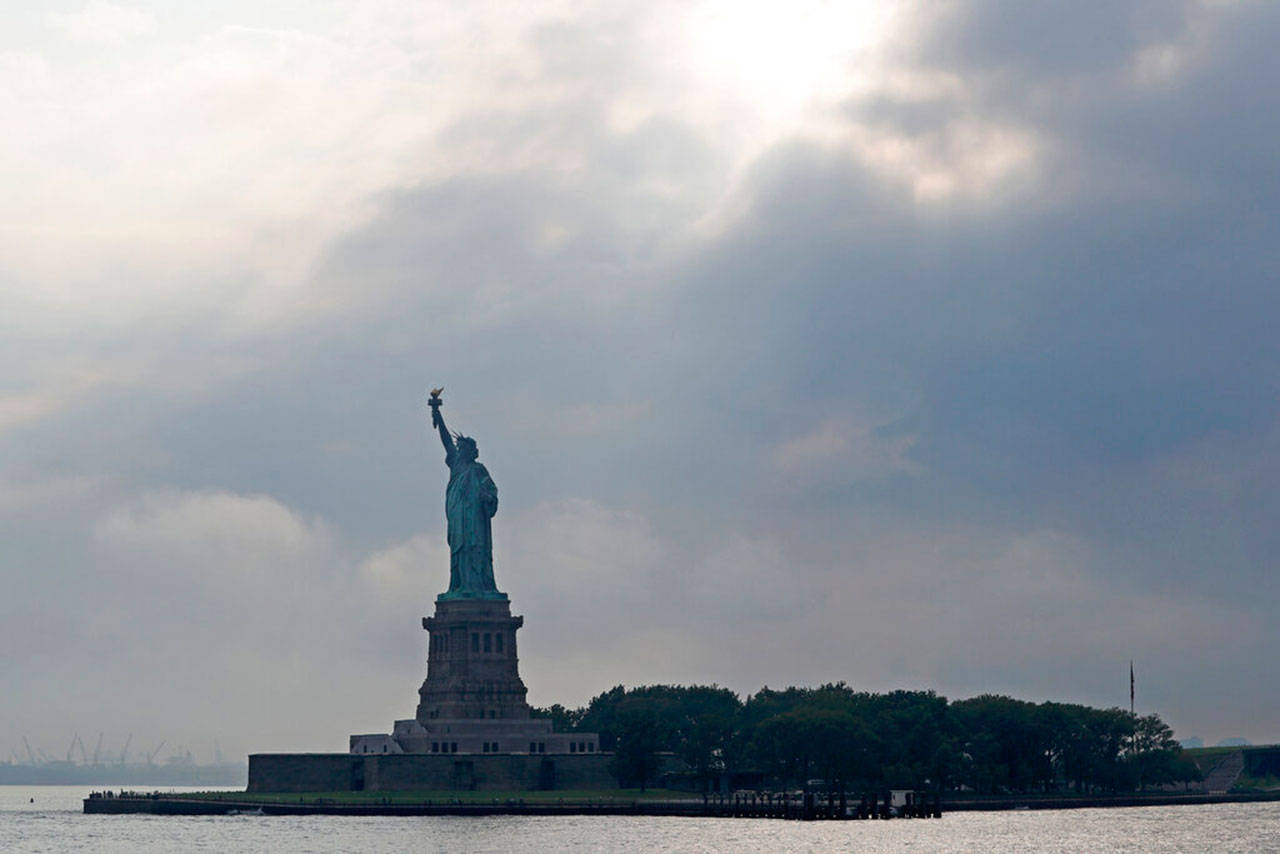By The Herald Editorial Board
As he has numerous times since the beginning of the Trump administration, Washington state Attorney General Bob Ferguson again is challenging White House policy that attempts to govern by fiat — and prejudice — rather than rule of law.
This time it’s a change to the “public charge” rule that seeks to discourage or disqualify nearly a quarter of this state’s 1 million legal immigrants — those here on visas or under other legal status — from using public aid in the form of food stamps, housing vouchers and Medicaid coverage, threatening to disqualify them from future consideration for permanent residency and citizenship if they apply for or use that assistance.
Nationwide, the rule change is expected to affect about 26 million immigrants legally in the country when it takes effect in October.
The change was defended last week by acting U.S. Citizenship and Immigration Services Director Ken Cuccinelli, who in an interview with National Public Radio rewrote the invitation in Emma Lazarus’ poem at the foot of the Statue of Liberty to read: “Give me your tired and your poor who can stand on their own two feet and who will not become a public charge.”
A day later he expanded on the poem’s intention, claiming the poem’s welcome to “huddled masses” referred to “people coming from Europe.”
If Lady Liberty doesn’t have a preference for wealthy, white Europeans, the Trump administration does.
Regardless of the accuracy of Cuccinelli’s literary critique, the Trump administration’s policy change and its justifications for it represent a gross misunderstanding of immigration and the efforts necessary to build new lives in this country, but it also represents a lack of knowledge regarding poverty and how it is best fought.
All of which makes Ferguson’s lawsuit, joined by 12 other states’ attorneys general, necessary.
The “public charge” rule has been law since 1882 and bars admission to the U.S. to immigrants who would not be able to care for themselves and could become a ward of the state. Currently, about 3 percent of noncitizens face a determination of being a “public charge,” according to the nonpartisan Migration Policy Institute, as Crosscut noted last week. But by increasing scrutiny on even the shortest-term use of federal- and state-supported aid, the new policy would apply to 47 percent of immigrants, an institute report said.
For immigrants in Washington state — again those here legally — more than 140,000 could lose their health coverage and more than 10,000 could be forced out of housing, Ferguson wrote in a December letter to the Department of Homeland Security when the rule was first proposed. Tens of thousands more, including children — most of whom are citizens — could lose food aid under the Supplemental Nutrition Assistance Program.
The loss of food assistance, the attorney general wrote, would mean up to a $55 million reduction in food aid and other benefits to needy families, up to a $97.5 million reduction in the state’s economic output, up to $36 million loss in workers’ wages and benefits and the elimination of hundreds of jobs, all significant hits to the state’s economy.
The denial of health coverage wouldn’t just be a burden for immigrants and their families, but an added weight on the state’s taxpayers. The result would be a loss of preventative care, forcing more to delay treatment to the point where emergency rooms would again be the only resort. Because hospitals can’t — and wouldn’t — refuse medical care, those costs would be borne by the hospitals themselves as “uncompensated care” or paid through the Alien Emergency Medical care program, Ferguson explained, for which the state is expected to pick up half the cost.
Forcing immigrants to make a “Sophie’s Choice” — between aid for food, health care and housing for their families and continued residence and future citizenship in their new country — won’t instill an ethic of self-reliance in immigrants that isn’t already present.
A greater percentage of immigrants are actually employed, compared to the percentage of native-born citizens, a study released by the Center for Budget and Policy Priorities found, as The Washington Post’s Jennifer Rubin reported; figures from the U.S. Bureau of Labor Statistics show that the labor force participation rate in 2018 was 65.7 percent among foreign-born adults and 62.3 percent for native-born adults.
The low incomes experienced by many new immigrants — and their use of public assistance — is a reflection of the lower wages many are paid; not of an unwillingness to work.
In fact, it’s their ability to take advantage of that public aid — typically for short periods of time — that assures immigrants and their children are nourished, healthy and housed while they build new lives and families here, gain training, find and keep employment, pay taxes and add to the strength of their communities.
A nation built by immigrants shouldn’t hesitate to offer its recent arrivals a little help to stand on their feet.
Talk to us
> Give us your news tips.
> Send us a letter to the editor.
> More Herald contact information.

























